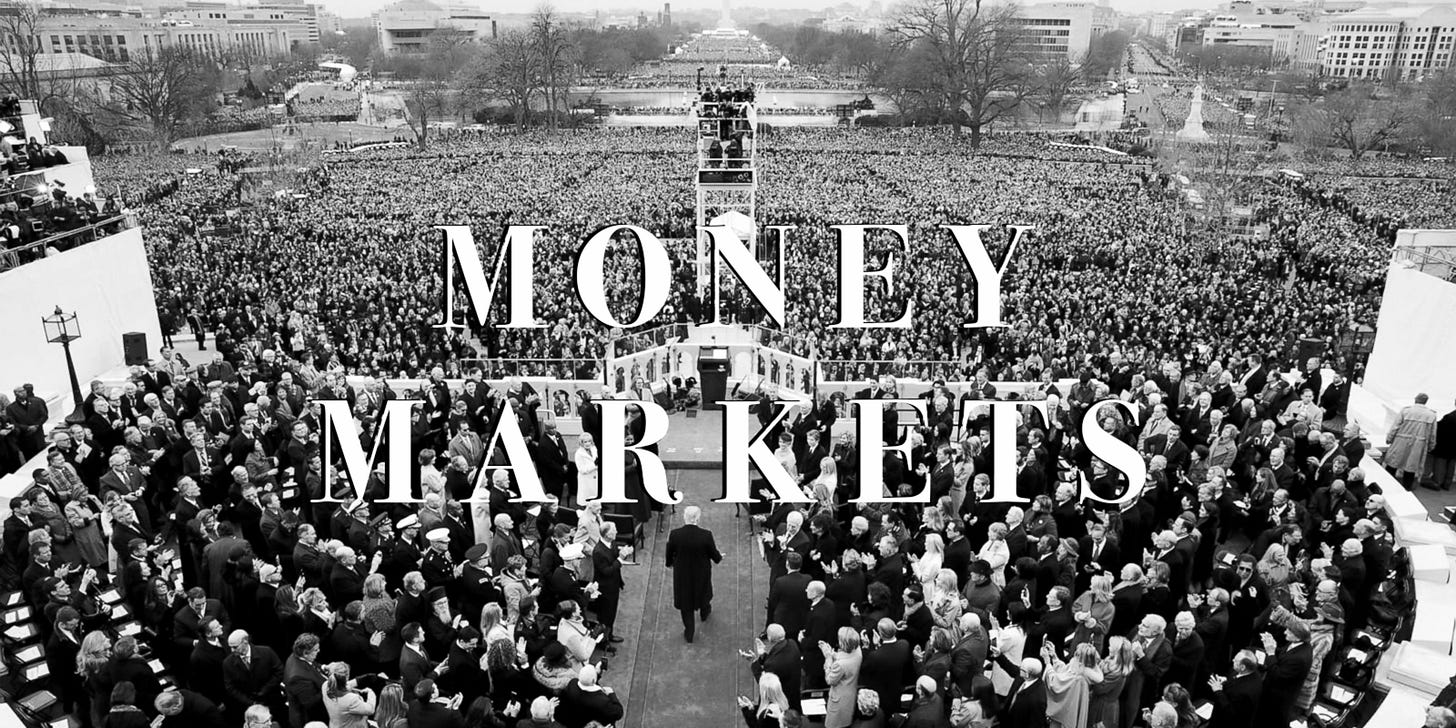“Surround yourself with winners; that way, your wins don’t make you feel like you’re bragging.”
Welcome to AlphaPicks’ monthly market update—a rundown of global markets for the coming weeks in under ten minutes (sort of).
Here’s what you need to know…
Macro
December proved to be a lively month to finish the year on, largely driven by central bank actions.
It became apparent early in the month that although the FOMC would indeed cut by 25bps, it could turn out to be a ‘hawkish cut’ since the outlook for further cuts in 2025 could be pared back somewhat, given the recent inflation data.
This turned out to be correct, with the dot plots indicating just two more cuts in 2025. Powell said the Fed can be more cautious as it assesses further adjustments because “the economy is strong overall.”
Interestingly, San Francisco Federal Reserve Bank President Mary Daly said later in December that the cut earlier that month was a “close call,” further providing a spook to equity market investors.
From here, it appears the Fed will stay on hold for January, with a February cut a 50/50 toss-up as we stand.
From our perspective, the other notable central bank meeting in December, which largely went unnoticed, was at the Swiss National Bank (SNB).
The SNB cut rates by 50bps when markets expected a quarter-point reduction. This now leaves them merely half a point—or two quarter-point reductions—away from a zero interest rate.
Given the recent strength in the Swiss Franc and the SNB’s willingness to use monetary policy to actively engage in FX, the path from here is interesting. They could expand their balance sheet through market interventions to limit CHF strength or look to move back to a zero / negative interest rate path.
Switzerland implemented a subzero interest rate policy for nearly eight years, partly to deter currency speculators. The nation maintained the lowest interest rate in the world at -0.75% and was the last economy in Europe to transition out of subzero conditions, moving higher in September 2022.
For the moment, the Swiss OIS curve doesn’t go negative, but it is one to definitely keep an eye on:
We elaborate on the Bank of Japan and their antics in the FX section, so we will close the central bank book there for the moment and move on to the other market-moving topic from December… President-elect Trump.
Although Trump has yet to take office, he has already been establishing his trade policy and appointing his team, which can provide more than an indication of his stance for 2025.
Some of it is simply noise; in other cases, his bark might be worse than his bite. But as far as trade tariffs go, fairly immediate action could be seen. During the month, he went after China, and although we aren’t completely sure about the scope or additional % to be placed on imports, it’s coming for sure.
Goldman put out a note stating that it expects the second Trump administration to increase tariff rates on imports from China by around 20% on average. They think tariffs will likely rise more sharply on non-consumer goods than on consumer goods.
Trump also spoke about energy. Under Biden’s Inflation Reduction Act, consumers could receive tax credits worth up to $7,500 when buying EVs. Trump has been vocal about how he would “end the electric vehicle ‘mandate’ on day one” of his term.
We wrote about what this could mean for stocks like Tesla (hint: it’s better for some EV manufacturers than others) back in late November, but it’s still relevant heading into January.
Finally, we can’t end this section without turning to Europe and politics. Both Germany and France are in a pickle, with both now having Governments that are ceasing to function.
The French government faced a no-confidence vote in the National Assembly, resulting in the ousting of Prime Minister Michel Barnier and his cabinet after just three months in office.
If you want to see a headline that (in our view) sums up the apparent blinkered view of the French policymakers, look no further than this NYE headline:
December also saw German Chancellor Olaf Scholz lose a vote of confidence in the Bundestag, leading to the collapse of his coalition government. President Frank-Walter Steinmeier subsequently dissolved parliament and has scheduled snap elections for late February.
Are we at peak pessimism in the Eurozone as we hit January? We’re not sure. Happy to hear thoughts on this.
Equities
U.S. Equities start the year looking to emulate the feat of the Chicago Bulls in the 90s:
Investors have experienced substantial rewards from U.S. equities over the past two years. As we approach 2025, we maintain an optimistic yet measured outlook, aware that two years of significant gains combined with a diversifying market indicate that much positive information is already reflected in the valuations of an increasing number of stocks. However, we still identify sufficient appreciation potential within individual companies to uphold a constructive, risk-positive stance.







